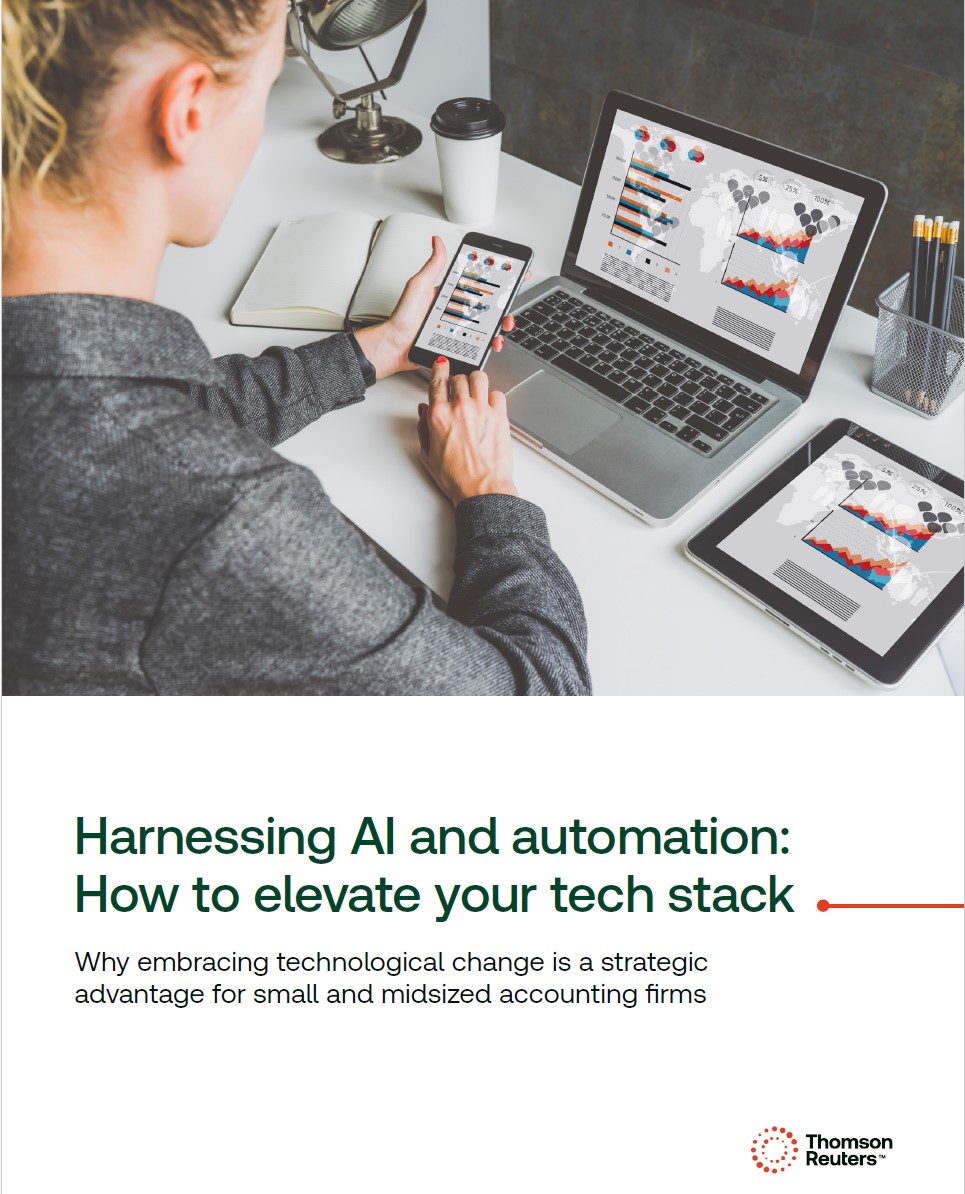With the dawn of AI comes an opportunity to tackle these challenges in a powerful way, particularly when it comes to empowering newer staff to support clients on their own and with confidence.
Jump to:
| How do you identify strained accounting staff? |
| What are the consequences of strained firm capacity? |
| How are accounting firms using AI? |
| How can AI help manage strained accounting firm capacity |
| Are you ready to harness the power of AI? |
From rising client expectations to an ever-changing regulatory environment to the ongoing war for talent, many accounting firms are struggling with strained bandwidth, limited resources, and a desperate need to upskill junior staff quickly.
With the dawn of AI comes an opportunity to tackle these challenges in a powerful way, particularly when it comes to empowering newer staff to support clients on their own and with confidence.
How do you identify strained accounting staff?
The accounting profession is no stranger to long work hours and hefty workloads, especially during busy tax season. However, when employees are feeling strained, it can quickly lead to burnout.
So, what should firms watch for? How can they identify strained accounting staff? When employees are strained, they become disengaged and there are some red flags that firm leaders should keep in mind. These include:
-
- Lack of enthusiasm: When an employee is no longer passionate or enthusiastic about their work, or they are simply doing the bare minimum that’s required of them.
-
- A rise in absenteeism: Do you have an employee who is frequently calling out sick or is routinely late to meetings? Their increased absenteeism could stem from stress.
-
- Loss of motivation: If an employee lacks motivation and interest in learning new skills and growing within the firm.
-
- Increased emotional reactions: If an employee exhibits greater signs of negativity, or is more irritable, sensitive, etc.
-
- Elusive behavior: If an employee begins exhibiting evasive behavior, like not attending meetings, not replying to messages, or avoiding group activities.
-
- Decline in customer service: If projects are taking too long to finish or are not adequately completed, or clients are voicing concerns about subpar customer service, which could be an indicator that the team is stretched way too thin.
-
- Decline in profitability: If the firm is experiencing a decline in profitability, it is important not to overlook the possibility that employee strain is a root cause.
What are the consequences of strained firm capacity?
Accounting staff strain can erode morale across the firm and lead to higher rates of employee turnover. That’s a costly consequence that firms cannot afford to overlook, given the challenging job market and the hefty cost associated with hiring a new employee, which can be three to four times the position’s salary.
Clearly, this all impacts an accounting firm’s capacity to effectively serve clients and drive profitability. Therefore, it is important that accounting firm leaders use advances in technology to alleviate the pressure plaguing the profession.
How are accounting firms using AI?
For accounting firms, AI-powered tax software offers the ability to streamline processes, boost efficiency, and derive meaningful insight from client data. When it comes to tax research, it also opens the door to instant access to guidance on tax law and related analysis, transforming the way accountants approach their work.
For many forward-looking firms, the process of integrating AI into their daily work has already begun.
According to the Thomson Reuters Institute 2024 Generative AI in Professional Services Report, about one-quarter of professionals surveyed say their organizations have already begun to update how they work by incorporating GenAI. This includes one-off usage of public platforms such as ChatGPT, but increasingly, it also includes tools built specifically for industry use cases — such as legal research or drafting tools, accounting irregularities and tax return preparation, or risk assessment and reporting platforms.
The top five use cases for tax and accounting firms who are using or planning to use GenAI include accounting/bookkeeping, tax research, tax return preparation, tax advisory and document review. All of which are key areas for firms looking to boost efficiency, upskill staff, and free up time for more valuable (and profitable) advisory services.
How can AI help manage strained accounting firm capacity
To alleviate stress, today’s accounting firms require a technology-first approach. Here are three ways AI can help accounting firms overcome capacity constraints and empower staff.
1. Increase efficiency
AI-powered software can automate repetitive tasks such as data entry, invoice processing, and reconciliation, saving your staff valuable time and reducing the likelihood of errors. This also frees up time to focus on higher-value activities like analysis, strategy, and client advisory services.
2. Enable self-sufficiency
There is no doubt that many accounting firms face a capacity challenge for senior staff who are spending too much time answering questions and micro-managing lower-level staff members. With an AI-powered tax research solution, you can empower your junior staff to answer client questions confidently and accurately.
3. Support the shift to advisory
AI algorithms can analyze large volumes of financial data quickly, uncovering insights and trends for your clients. This enables all levels of staff to identify risks, opportunities, and anomalies in financial statements, enabling more informed decision-making and the opportunity to offer profitable and fulfilling strategic advisory services to clients.
Are you ready to harness the power of AI?
For today’s accounting firms, managing strained capacities requires a proactive approach that embraces both innovation and technology.
By leveraging AI-powered solutions, firms can overcome the challenges posed by resource scarcity, time constraints, and budget limitations, while also empowering their staff to work more autonomously and efficiently.
Embracing AI is not just about enhancing tax research capabilities—it’s about building a future-ready firm that is equipped to thrive in an increasingly complex and competitive landscape. In doing so, your firm can significantly boost staff autonomy, drive sustainable growth, and deliver exceptional value to clients.










